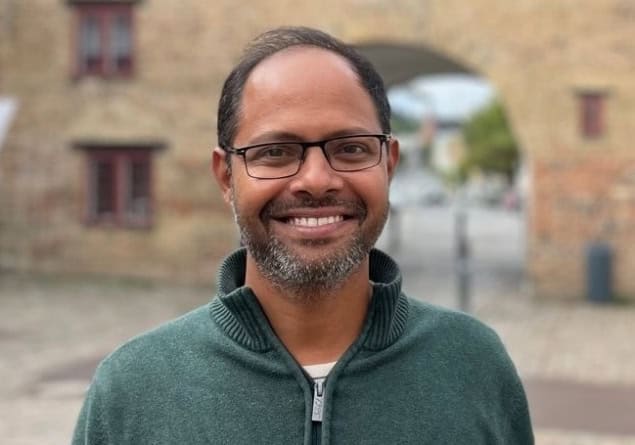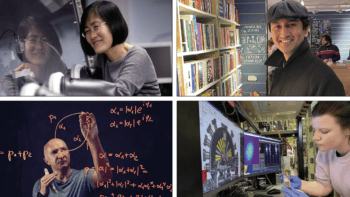
Vinodh Bandaru from the Indian Institute of Technology in Guwahati, India, and colleagues have been awarded the 2024 Plasma Physics and Controlled Fusion (PPCF) Outstanding Paper Prize for their research on “relativistic runaway electron beam termination” at the Joint European Torus (JET) fusion experiment in Oxfordshire.
The work examines the termination of relativistic electron beam events that occurred during experiments on JET, which was operated at the Culham Centre for Fusion Energy until earlier this year. A better understanding of such dynamics could help the successful mitigation of plasma disruptions, which lead to energy losses in the plasma. The work could also be useful for experiments that will take place on the ITER experimental fusion tokamak, which is currently under construction in Cadarache, France.
Awarded each year, the PPCF prize aims to highlight work of the highest quality and impact published in the journal. The award was judged on originality, scientific quality and impact as well as being based on community nominations and publication metrics. The prize will be presented at the 50th European Physical Society Conference on Plasma Physics in Salamanca, Spain, on 8–12 July.
Jonathan Graves from the University of York, UK, who is PPCF editor-in-chief, calls the work is “outstanding”. “[It] explores state of the art simulations with coupled runaway electron physics, presented together with convincing comparison against disrupting JET tokamak plasmas,” he says. “The development is critically important for the safe operation of future reactor devices.”
Below, Bandaru talks to Physics World about the prize, his research and what advice he has for early-career researchers.
What does winning the 2024 PPCF Outstanding Paper Prize mean to you?
The award means a lot to me, as a recognition of the hard work that went into the research. I would like to thank my co-authors for their valuable contributions and PPCF for considering the paper.
How important is it that researchers receive recognition for their work?
Receiving recognition is encouraging for researchers and can give an extra boost and motivation in their scientific pursuits. This is more so given the nature and dynamics of contemporary research work. This new initiative from PPCF is very welcome and commendable.
What advice would you give to early-career researchers looking to pursue a career in plasma physics?
Having worked in a few different fields over the years, I can say that plasma physics is one area that entails significant complexity due to the shear range of length and timescales of the physical processes involved. This not only offers interesting and challenging problems, but also allows them to choose from a variety of problems over the course of one’s research career.
How so?
Fusion science has now reached an inflection point with enormous ongoing activity involving research labs, universities as well as start-ups all over the world. With several big and important projects underway such as ITER and the planned Spherical Tokamak for Energy Production in the UK, plasma researchers can not only make important, concrete and impactful contributions, but can also have a relatively visible long-term career path. I would say these are really exciting times to be in plasma physics.



